If your jeep shuts off while driving and won’t start, it could be due to a variety of issues such as a faulty ignition switch, fuel pump failure, or a dead battery. To diagnose the exact cause, it is recommended to check the ignition system, fuel delivery system, and battery voltage to ensure all components are working properly.
The Jeep Shuts Off While Driving And Won’t Start
If you are a proud owner of a Jeep, you probably love its ruggedness and reliability. But what if one day, your Jeep decides to play a prank on you and shuts off while you are driving? And worse, it won’t start again no matter how hard you try.
Don’t panic, this is not the end of the world. There are some common reasons why this might happen and some simple solutions you can try.
One of the most obvious reasons why your Jeep shuts off while driving is that it runs out of fuel.
This can happen if your fuel gauge is broken or if you forget to fill up the tank. To avoid this embarrassing situation, always check your fuel level before you hit the road and keep an eye on the warning lights on your dashboard. If you run out of gas, you will need to call a friend or a tow truck to bring you some fuel.
Another possible reason why your Jeep shuts off while driving is that your alternator is faulty. The alternator is the part that charges your battery and powers your electrical system.
If it fails, your battery will drain quickly and your engine will stop running. You can tell if your alternator is bad by checking the voltage of your battery with a multimeter or by looking for signs of corrosion or damage on the alternator itself.
If you suspect that your alternator is the culprit, you will need to replace it or have it repaired by a mechanic.
A third common reason why your Jeep shuts off while driving is that your fuel pump is defective. The fuel pump is the part that pumps fuel from the tank to the engine.
If it malfunctions, your engine will not get enough fuel and will stall. You can diagnose a bad fuel pump by listening for a whining noise from the fuel tank or by testing the fuel pressure with a gauge.
If you confirm that your fuel pump is not working properly, you will need to replace it or have it fixed by a professional.
There are other possible reasons why your Jeep shuts off while driving, such as a clogged fuel filter, a damaged ignition switch, a faulty crankshaft sensor, a bad mass airflow sensor, or an overheated engine. These problems can be more difficult to identify and require more advanced tools and skills to solve. If you are not sure what is causing your Jeep to shut off while driving, it is best to take it to a reputable mechanic who can diagnose and fix the problem for you.
Driving a Jeep can be a lot of fun, but it can also be frustrating when it shuts off unexpectedly and won’t start again.
Fortunately, most of the time, this issue can be prevented or resolved easily by checking your fuel level, replacing your alternator, or fixing your fuel pump.
By following these tips, you can keep your Jeep running smoothly and enjoy its adventurous spirit.
Understanding The Common Causes Of Jeep Stalls Mid-Drive
Sometimes, out of nowhere, your jeep can suddenly shut off while you’re driving, causing panic and confusion. Not only is this situation frustrating, but it can also be dangerous, especially if you’re on a busy road. If your jeep shuts off and won’t start again, there are several common causes that could explain this issue.
Understanding these causes can help you identify the problem and resolve it accordingly.
Fuel Delivery Issues
- Insufficient fuel pressure: A clogged or faulty fuel filter, a failing fuel pump, or a fuel pressure regulator can result in inadequate fuel pressure, leading to engine stalling.
- Faulty fuel injectors: When fuel injectors become dirty or malfunction, they may either spray too much fuel or not enough, causing an imbalance and resulting in engine shutdown.
- Contaminated fuel: If the fuel in your jeep is contaminated with water, dirt, or impurities, it can disrupt the flow and cause the engine to stall unexpectedly.
- Vapor lock: High temperatures can cause fuel vaporization in the fuel line, resulting in a vapor lock that hinders the continuous flow of fuel, leading to stalling.
Ignition System Problems
- Faulty ignition switch: A worn-out or malfunctioning ignition switch can cause a sudden loss of power, resulting in your jeep shutting off abruptly.
- Defective ignition coil: An ignition coil that is faulty or failing can disrupt the ignition system, leading to intermittent stalling while driving.
- Malfunctioning spark plugs or wires: If the spark plugs or ignition wires are worn out or damaged, they can cause misfires and intermittent engine shutdown.
- Ignition control module failure: The ignition control module controls the spark and timing of the ignition system. When this module fails, it can cause your jeep to stall unexpectedly.
Sensor Malfunctions
- Crankshaft position sensor failure: The crankshaft position sensor monitors the rotational speed and position of the crankshaft. A malfunctioning sensor can lead to intermittent stalling as it provides incorrect signals to the engine control unit.
- Camshaft position sensor failure: The camshaft position sensor helps synchronize the engine’s mechanical timing. When this sensor fails, it can cause the engine to stall during driving.
- Oxygen sensor malfunction: The oxygen sensor measures the amount of oxygen in the exhaust gases, adjusting the fuel-to-air ratio accordingly. If this sensor malfunctions, it can lead to uneven fuel delivery and engine stalling.
- Throttle position sensor issues: A faulty throttle position sensor can disrupt the engine’s air-fuel mixture, causing the engine to shut off unexpectedly while driving.
By recognizing the various potential causes of your jeep stalling mid-drive, you can troubleshoot and address the issue promptly. Whether it’s a fuel delivery problem, an ignition system issue, or a sensor malfunction, seeking professional help or performing necessary repairs can resolve the problem and ensure the safety of your jeep on the road.
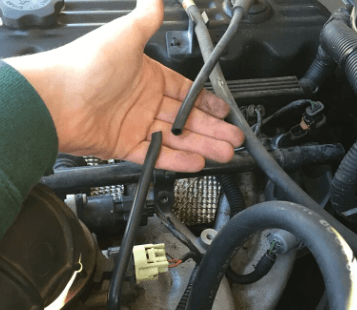
Step-By-Step Guide: How To Troubleshoot A Jeep Stalling Mid-Drive
Is there anything more frustrating than your jeep shutting off while you’re in the middle of driving, leaving you stranded on the side of the road? If you’ve experienced this issue, don’t worry, because we’ve got you covered. In this step-by-step guide, we’ll walk you through the troubleshooting process to help you identify what’s causing your jeep to stall and not start.
Let’s get started!
Check The Fuel Level
- Ensure that your jeep has enough fuel by checking the fuel gauge.
- If the fuel level is low or empty, fill up the tank and try starting your jeep again.
- If the fuel gauge is faulty or inaccurate, consider replacing it with a new one.
Inspect The Fuel Pump
- Start by locating the fuel pump, which is typically located inside the fuel tank.
- Check if there are any visible signs of damage or leaks in the fuel pump or its wiring.
- Test the fuel pressure using a fuel pressure gauge to determine if the pump is functioning properly.
- If the fuel pump is faulty, it may need to be replaced by a professional.
Test The Ignition Coil
- The ignition coil is responsible for generating the spark that ignites the fuel in the combustion chamber.
- Use a multimeter to test the ignition coil’s primary and secondary resistance.
- Ensure that the readings are within the manufacturer’s specified range.
- If the ignition coil is faulty, it will need to be replaced to restore proper ignition.
Examine The Crankshaft Position Sensor
- The crankshaft position sensor provides the engine control module (ecm) with information about the crankshaft’s position and speed.
- Inspect the sensor for any debris or damage that may affect its function.
- Use a multimeter to test the sensor’s resistance and voltage output.
- If the sensor is malfunctioning, it may need to be replaced to resolve the stalling issue.
Verify The Integrity Of The Throttle Position Sensor
- The throttle position sensor measures the position of the throttle plate and relays this information to the ecm.
- Inspect the sensor for any signs of wear or corrosion.
- Test the sensor’s resistance and voltage output using a multimeter.
- If the throttle position sensor is defective, it should be replaced to ensure proper engine performance.
By following these troubleshooting steps, you can determine the underlying cause of your jeep stalling mid-drive and not starting. However, if you’re unsure about any of these procedures or need further assistance, it’s always best to consult with a qualified mechanic or jeep dealership.
They have the expertise and specialized equipment needed to diagnose and resolve complex issues. Stay safe on the road and happy jeeping!
Diy Fixes: Addressing Jeep Stalling Issues At Home
Jeep shut off while driving and won’t start: diy fixes: addressing jeep stalling issues at home
Has your jeep ever shut off while you were driving, leaving you stranded on the side of the road? It can be a frustrating experience, but before you panic or call the tow truck, there are a few diy fixes you can try at home to address the stalling issues.
In this section, we will explore some common causes of jeep stalling and provide step-by-step instructions on how to clean the fuel injectors, replace the fuel filter, check and clean spark plugs, and test and replace the oxygen sensor.
Cleaning The Fuel Injectors:
Cleaning the fuel injectors can help improve the overall performance of your jeep’s engine and prevent stalling. Here’s how you can do it:
- Start by locating the fuel injectors, usually found near the engine’s intake manifold.
- Disconnect the fuel injectors from the fuel rail.
- Use a fuel injector cleaning kit to flush out any build-up or debris from the injectors.
- Reconnect the fuel injectors to the fuel rail.
Replacing The Fuel Filter:
A clogged fuel filter can restrict the flow of fuel to the engine, leading to stalling issues. Follow these steps to replace the fuel filter:
- Locate the fuel filter, typically located along the fuel line under the vehicle.
- Use a wrench to loosen the fittings on both ends of the fuel filter.
- Remove the fuel filter and replace it with a new one.
- Tighten the fittings on both ends of the new fuel filter.
Checking And Cleaning Spark Plugs:
Faulty or dirty spark plugs can cause your jeep to stall. Follow these steps to check and clean the spark plugs:
- Locate the spark plugs, usually connected to the engine’s cylinder head.
- Remove the spark plug wires one by one.
- Use a socket wrench to remove the old spark plugs.
- Inspect the spark plugs for any signs of wear or fouling. Clean or replace as necessary.
- Reinstall the spark plugs and reconnect the spark plug wires.
Testing And Replacing The Oxygen Sensor:
A malfunctioning oxygen sensor can disrupt the air-fuel mixture in your jeep’s engine, leading to stalling problems. Here’s how you can test and replace the oxygen sensor:
- Locate the oxygen sensor, typically mounted on the exhaust system.
- Disconnect the electrical connector from the oxygen sensor.
- Use an oxygen sensor socket to remove the old sensor.
- Install the new oxygen sensor and reconnect the electrical connector.
By following these steps, you can attempt to troubleshoot and resolve the stalling issues with your jeep at home. However, if the problem persists or you are uncomfortable performing these tasks yourself, it is recommended to consult a professional mechanic for further assistance.
Happy jeep fixing!
When To Seek Professional Help
If you find yourself dealing with a situation where your jeep shuts off while driving and refuses to start, there are certain cases where seeking professional help becomes necessary. While some minor issues can be resolved through diy repairs, it’s important to recognize when the problem requires the expertise of a professional mechanic.
Here are a few scenarios in which you should consider seeking professional help:
Recognizing Complex Electrical Issues
- When you’ve exhausted all basic troubleshooting methods: If you’ve already checked the battery, inspected the fuses, and ensured that there are no loose connections, but the problem persists, it might be a complex electrical issue.
- When warning lights or error codes appear: Modern jeeps are equipped with advanced electronic systems that often display warning lights or error codes when there’s an underlying electrical problem. Professional technicians have the tools and knowledge to diagnose these complex issues accurately.
- When there’s a recurring problem: If the issue keeps occurring even after attempting multiple diy fixes, it’s a sign that there could be a more significant electrical problem. Seeking professional help can help identify and resolve the root cause.
Dealing With Major Engine Component Failures
- When there’s a suspected engine failure: If your jeep shuts off abruptly or experiences a loss of power while driving, it could indicate a major engine component failure, such as a broken timing belt, a seized engine, or a faulty fuel injection system. These issues often require professional expertise to diagnose and repair.
- When internal engine repairs are needed: Repairing or replacing internal engine components, such as the camshaft, crankshaft, or valves, can be complex and requires specialized tools and knowledge. It’s best to consult a professional mechanic in such cases to ensure the job is done correctly.
Understanding The Limits Of Diy Repairs
- When the repair involves specialized equipment: Some repairs require specific tools or diagnostic equipment that might not be readily available to the average diyer. Professional mechanics have access to a wide range of specialized tools to diagnose and fix complex issues effectively.
- When the repair involves safety concerns: Certain repairs, such as dealing with the fuel system, electrical wiring, or suspension components, can be hazardous for those without proper training or experience. It’s best to entrust these repairs to professionals who are well-versed in safety protocols.
- When there’s a warranty or insurance coverage: If your jeep is still under warranty or you have insurance coverage that can potentially cover the repair costs, it’s advisable to consult a professional mechanic. Attempting diy repairs yourself may void your warranty or insurance coverage.
Remember, while diy repairs can save you money and time for minor issues, it’s crucial to recognize when a problem requires the expertise of a professional. By seeking professional help promptly, you can ensure your jeep gets the necessary repairs and minimize the risk of further damage.
Importance Of Regular Jeep Maintenance To Prevent Engine Stalling
Regular maintenance is crucial to keep your jeep in optimal condition and prevent unexpected engine stalling while driving. By following a few simple maintenance routines, you can ensure that your jeep continues to run smoothly and reliably. Here are some key points to keep in mind:
Regular Oil Changes And Filter Replacements:
- Adequate lubrication is vital for the optimal performance of your jeep’s engine. Regularly changing the oil and filter helps remove dirt, debris, and contaminants that can hinder engine functioning.
- Fresh oil ensures proper lubrication of engine components, reducing friction and heat build-up that can lead to stalling.
- Replace the oil filter as recommended by the manufacturer to maintain the integrity and efficiency of the filtration system.
Keeping Up With Scheduled Tune-Ups:
- Regular tune-ups are essential to identify and address any underlying issues that could cause engine stalling.
- During tune-ups, a trained technician can inspect ignition components, spark plugs, and fuel system for signs of wear or damage.
- Faulty spark plugs or ignition coils can lead to misfires and stalling, so replacing or repairing them in a timely manner is crucial.
Monitoring Fluid Levels And Quality:
- Ensure that all fluid levels, including coolant, transmission fluid, and brake fluid, are checked regularly and topped up as needed.
- Low or contaminated fluids can affect engine performance, leading to potential stalling issues.
- Periodically inspect the condition of fluids to ensure they are clean and free from debris or contamination.
Inspecting Engine Belts And Hoses:
- Over time, belts and hoses can deteriorate, crack, or become loose, causing engine malfunctions and stalling.
- Regularly examine the condition of belts and hoses, looking for signs of wear, fraying, or leakage.
- Replace worn or damaged belts and hoses promptly to prevent engine performance problems.
Maintaining your jeep through regular oil changes, tune-ups, fluid monitoring, and belt/hose inspections is essential to prevent engine stalling while driving. By staying proactive with your maintenance routine, you can ensure that your jeep remains reliable and safe on the road.
Remember, a well-maintained jeep is a jeep that won’t leave you stranded.
Frequently Asked Questions For Jeep Shut Off While Driving And Won’T Start
Why Did My Jeep Shut Off While Driving?
There can be several reasons why your jeep shut off while driving, including a faulty ignition switch, fuel delivery issues, a bad alternator, or an electrical problem. It is best to have your vehicle inspected by a professional mechanic to determine the exact cause and get it fixed.
What Should I Do If My Jeep Won’T Start After Shutting Off?
If your jeep won’t start after shutting off, start by checking the battery connections and ensuring they are clean and secure. If the battery is not the issue, there may be a problem with the starter motor, fuel pump, or ignition system.
It is recommended to have a mechanic diagnose and repair the problem.
How Can I Prevent My Jeep From Shutting Off While Driving?
To prevent your jeep from shutting off while driving, make sure to follow regular maintenance schedules, such as changing the fuel filter, spark plugs, and air filter. Additionally, keep an eye on warning lights on the dashboard and address any issues promptly.
Regularly have your jeep serviced by a qualified mechanic to detect any potential problems before they become major issues.
Conclusion
If your jeep shuts off while driving and won’t start, it can be frustrating and concerning. However, by following the troubleshooting steps mentioned in this blog post, you can address the issue effectively. From checking the battery connections to inspecting the fuel system, each step serves to identify and resolve potential problems.

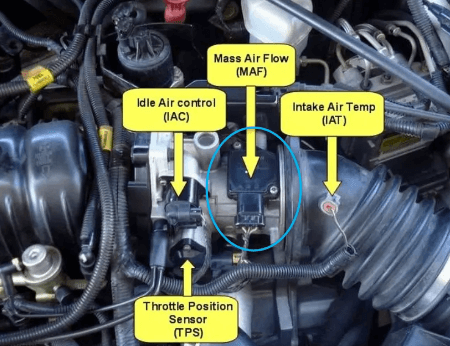
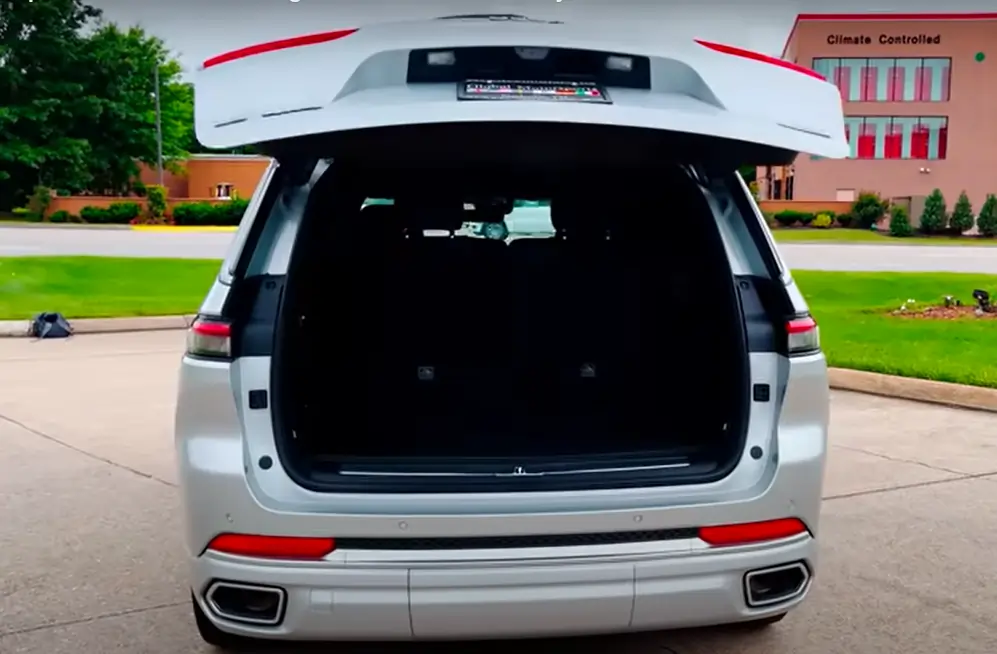
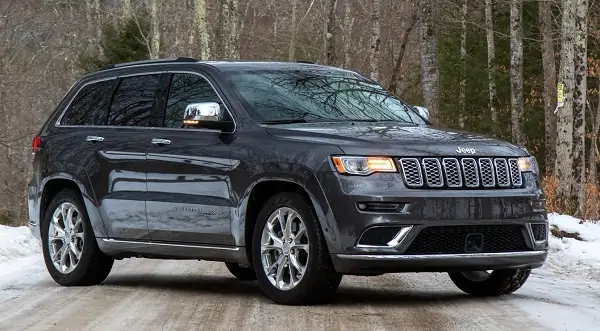




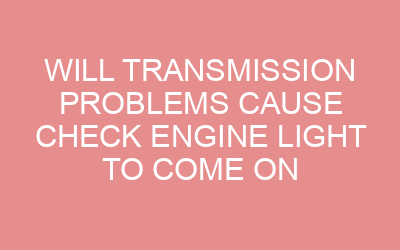




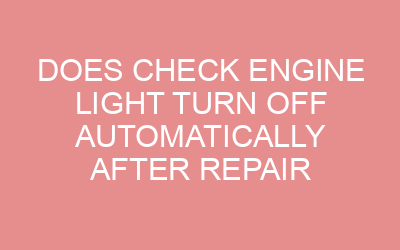
Leave a Reply